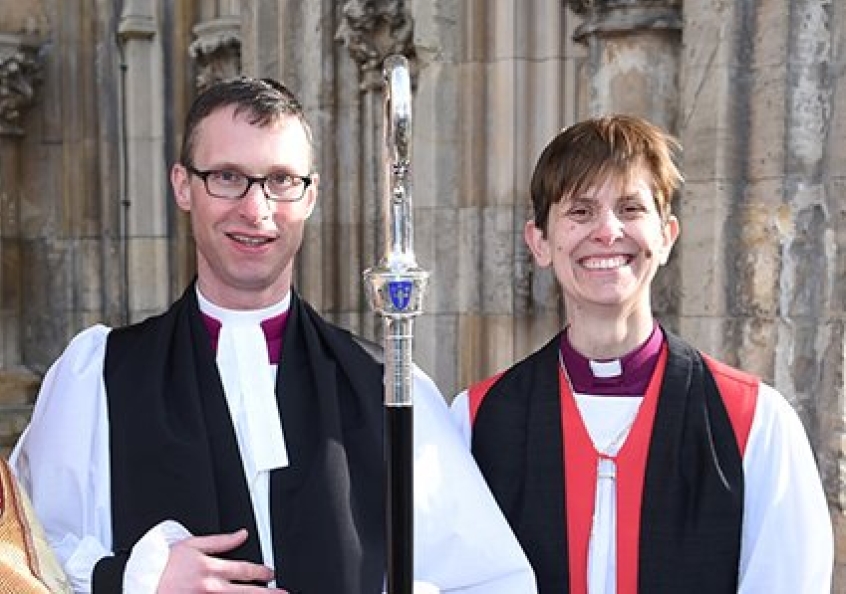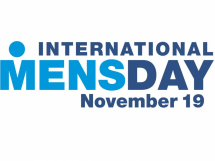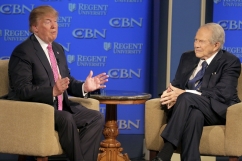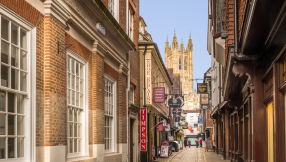
I remember exactly where I was when I heard the news. A feeling of sadness and dread passed over me as I realised the full implications of the decision. It's five years later now and the Church of England's rejection of women bishops seems a lifetime ago.
The skill of Archbishop Justin Welby, and many others, in negotiation and building bridges meant that only two years later, in 2014, the General Synod voted in favour of female bishops.
It was a momentous decision. Not long afterwards Libby Lane became the first ever female bishop of the Church of England. Then Rachel Treweek became the first ever diocesan (senior) bishop. The number of women who've been consecrated is now in double figures and the Church is looking forward to many more bringing their gifts into leadership in the coming decades.
Events of the last few weeks haven't hit me with the same visceral sense of dread as that initial rejection did in 2012. Yet the more I think about the decision of Phillip North to withdraw from the post of Bishop of Sheffield, the more I'm concerned about the future of the Church.
A little catch up for those uninitiated. North is currently Bishop of Burnley, a more junior role, and was set to be appointed Bishop of Sheffield. When his elevation was announced, a campaign against it began on account of his 'traditionalist' beliefs. North is from the Anglo-Catholic wing of the Church and the more conservative-minded people on that wing don't believe women can be priests, let alone bishops.
When the legislation was passed in 2014 paving the way for women to be bishops, it was decided that traditionalists from both the Anglo-Catholic and evangelical camps would be catered for. The Archbishop of Canterbury said, 'The challenge for us will be for the Church to model good disagreement and to continue to demonstrate love for those who disagree on theological grounds.'
Amidst the celebrations, the Archbishop no doubt meant this as a cautionary note. It has gone beyond that, though. It has become distressingly prophetic.
It seems good disagreement was not possible. The campaign to prevent Bishop North from taking up his position in Sheffield became too much. The interventions of people outside the diocese seemed to be an incredible strain on those within. I was in Sheffield last week and the pressure being felt by clergy and senior leadership there was obvious. In the end, it became too much. North withdrew and will not become Bishop of Sheffield. Wither good disagreement?
Let me be clear: as someone who has received massive amounts from women in leadership, I was a passionate campaigner for female bishops. I think Phillip North is wrong to oppose the ordination of women. I think the Bible is in favour of women in leadership. Yet, there's more to the picture than that. North is a committed evangelist, social justice activist and great friend of many women clergy (including his fellow bishop, Libby Lane).
The legislation which made it possible for women to become bishops also made North's position a legitimate and tenable one within the Church. If that has now been changed, de facto – not by debate, but by a concerted campaign from outside (and inside) Sheffield Diocese, we are in trouble.
The whole basis of the Church's decision to opt for female bishops could now be called into question. As CofE legal expert Gavin Drake said on Facebook: 'The legislation passed ONLY because a package of measures was agreed to provide for the mutual flourishing of women clergy AND of those whose theological convictions opposed them. That package of measures has just, effectively, been ripped up.'
This may end up being a Pyrrhic victory for those campaigners who also want full gay inclusion in the Church. If there is to be any change of position from the Church of England on that issue in the coming decades, then the General Synod will have to amend the current rules.
What are the chances that a deal can now be reached in good faith, knowing that whatever is decided during debate and on paper can now be essentially overturned by applying public pressure via newspaper articles? If the more liberal wings of the Church want to change the way the CofE treats gay people, it is going to have to convince the more conservative wings that their integrity isn't at risk from such a move. Is this plausible now?
The Archbishop called for good disagreement. Many women who are passionate about inclusion heeded the call. Women in North's current diocese said he'd been an excellent colleague. Campaigners such as Elaine Storkey and Rev Sally Hitchiner offered their support. Evangelical theologian Storkey said, 'as a long-term campaigner for Women Bishops I am ashamed that we have not kept our promises of inclusivism'. Hitchiner, a priest and commentator said, 'The church has lost a huge amount in @BpBurnley stepping down from his post in Sheffield... The C of E is committed to members who are against women's ordination & we have attacked such a shining example of how to do that well.'
Rev Jules Middleton is a priest in Chichester Diocese where the Bishop, Martin Warner, takes the same stance as Bishop North. She says, 'I, as an ordained woman want to publically say that I am appalled at the way +Philip has been treated and sad that he has felt the need to step aside, which can only be due to the recent and public objections – how is this in any way enabling mutual flourishing?'
This isn't just a storm in a teacup. The Church of England is for the whole country. This should concern all Christians and all English people. The national Church is broad and it must stay that way, otherwise we're finished and will become just another voice.
I saw two (male) priests on either side of this debate exchanging tweets this morning. One said to the other, 'I think we are coming at this from very different theological positions.' That's the point – people of different convictions living together and managing 'good disagreement.' Now? God only knows...
Follow Andy Walton on Twitter @waltonandy
















